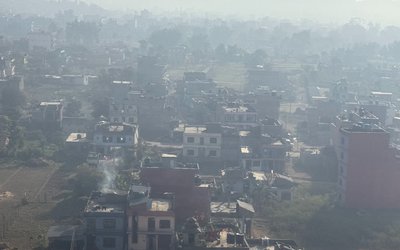Nepal has secured a position as one of the top performers in the national water security index, as per a report prepared by the Asian Development Bank. Nepal has scored 28 points, in comparison to the South Asian average of 33.7 points. Although Nepal’s achievement is something to be proud of, it is necessary to admit that many Nepalese, especially women, find the term ‘water security’ quite elusive, as many of them had not had the opportunity to experience it. Moreover, their role in achieving this water security and the benefits that they have reaped from it remain amorphous. Water security and women’s involvement in achieving it play no small role in strengthening the country’s economy and contributing to smooth recovery and resilience building.
What is water security and how can it be understood as a contributing factor to the overall economic development of a country, specifically to that of Nepal?Water security means more in addition to having sustainable access to acceptable quality water for improving health and living standard. The UN defines water security also as the capacity of the population to garner the benefit of sustainable access to water for socio-economic development. The Nepalese population, for example, can do so in many ways. They can manage water in ways to ensure enough allocation for farming purposes or develop community based conservation techniques that will lead to low cost and time-sensitive access to water for drinking, cooking, and other household purposes, amongst many others. These are likely to lead to increase in financial resources, savings, and productive consumption or investment.
Nepalese women play a much greater role in harnessing the power of water for socio-economic development; the role of Nepalese women, however, has been undermined in terms of their contribution to Nepalese water security and in terms of investment that is required to further nurture their roles in achieving it.
Nepalese women, for ages, have been collecting and managing water for household use, cooking, and family hygiene. Therefore, they have been key players in maintaining their family’s and community’s health, and by doing so strengthening the country’s human capital. They have also been playing an active role in community based conservation techniques, nurturing community’s social capital. Moreover, since many Nepalese men have migrated abroad, women have been undertaking farming responsibilities as well and thus, being involved in income-generating activities through the use of water.
Despite their significant role in using water to harness human, social, and physical capital, women have still not been able to make their mark as key players in achieving economic water security.
Nepalese women’s role in influencing decisions regarding how water resources are managed at the local, regional, and national levels is very limited. There exist many women led groups and co-operatives all over Nepal. However, they are seldom consulted on ways to utilize natural water resources for the benefit of the community members. Women, even those who are farmers, do not influence decisions regarding the use of community water sources for irrigation purposes. Moreover, women have very little say regarding the location of water distribution sources. This is evident from the fact that women have to travel long distances on foot to fetch water for household purposes.
Nepalese women, even though responsible for managing water on day to day basis, lack political power; their representation in the local and national government is minimal. This severely curbs their engagement in managing water for economic purposes. As an example, women have been managing community forests and water resources within them for generations using traditional conservation methods; however, due to lack of political power they have had little or no control over the encroachment of these forests by government and private sectors and the imposition of modern conservation methods. This has affected their use of water for household and farming purposes.
There are ways to counteract the aforementioned problem. There is great scope to explore and implement gender balanced water management techniques. For example, mobilizing women groups for the management of water resources, strengthening the interaction between women’s groups and service providers, and enhancing their decision making capacity to use water for farming purposes. Moreover, provisioning technical training to women on environment friendly technologies and entrepreneurship is also beneficial.
This concern requires immediate attention if Nepal is to move up the ladder of the water security index and set an example for countries in South Asia. Much is at stake here. If women’s role is marginalized, management of water will fall in the hands of those who use and manage it less or are far removed to reap the benefit or face the consequences. This makes it difficult to secure water for consumption, pushing water security for productive investment out of the question altogether. It will be a waste of water resources of a country so abundant in them.
- Poor (country) on a pile of money
- Dec 16, 2016
- Careful Financial Regrouping Cutbacks Imminent
- Nov 18, 2016
- Faithful or Fearful Fluctuations
- Aug 31, 2016
- Walking on Prachanda path?
- Aug 11, 2016
- Panic or Productive Consumption
- Aug 01, 2016
















